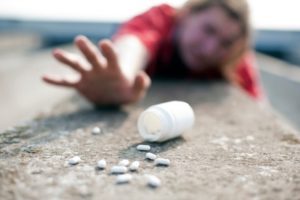
It’s critical that if you’re seeking advice for an addiction to alcohol or other drugs or even a process behaviour like gambling, sex addiction or an eating disorder that you seek help from a qualified and experienced professional. Often addicted people spend time unaware of just how severe their problems are and what they need to do to begin to take responsibility to their addictive illness. When they finally seek help or get taken for help by family and friends, as is more often the case, this stage is can be referred as ‘per-contemplation’ as defined by the ‘stages of change’ model developed by Prochaska & DiClemente.
While this ‘stages of change’ model has received some criticism, as all theories do, it may be useful for our purposes to help understand the mind of the drug addicted person. While ‘pre-contemplative’, the drug addict does not see any problem in their existing behaviours and has not thought that there may be different and better options. Often when drug addicted people end up seeking advice from a counsellor or treatment centre it’s under some form of duress from friends, family and employers. Often the people around the patient report that the addicted person is in ‘denial’ of their problem.
This first of the 6 stages define the bulk of people when they first seek advice for their addictive behaviours. Our work as drug addiction professionals is, in part, to help the patients move to a position of contemplating that there may indeed be a problem and something will have to change to avert more serious consequences. This is the initial work done in an drug addiction treatment centre after the initial detoxification is complete and the patient can attend the therapeutic process groups, lectures and individual counselling. After being admitted to the rehab clinic a medically supervised detox is the start to a successful recovery program. Detoxification itself though is not considered a comprehensive drug addictions treatment. Any professional giving sound addictions advice would recommend detox as a safe, medically managed process, ensuring as much comfort as possible during the body’s withdrawal from the addictive substance, and further wide-ranging treatment thereafter.
 Following a successful detox the patient will embark on a carefully devised individual recovery program, ideally in a residential addictions clinic. This takes commitment from the individual and also from close family and friends. Treatment of Mind, Body and Spirit.
Following a successful detox the patient will embark on a carefully devised individual recovery program, ideally in a residential addictions clinic. This takes commitment from the individual and also from close family and friends. Treatment of Mind, Body and Spirit.
Addiction to alcohol and other drugs is widely recognized as an illness that affects sufferers physically, mentally and emotionally. Therefore your Medical Aid will pay for treatment.
In order for addiction rehab centre’s to provide the guidance that leads to a successful ongoing recovery, treatment needs to address the person’s needs comprehensively. No one aspect of the illness can be treated in isolation. Most of the more successful addiction rehab clinics operate with a multi disciplinary staff team including medical, psychiatric, clinical psychologists, therapists and trained counsellors some of whom will have had a personal experience of recovery from addiction. As well as a tailored treatment plan within the rehab centre the patient will normally be introduced to the appropriate 12-step fellowship depending on their individual circumstances.
This introduction to 12 step fellowship support groups like AA (Alcoholics Anonymous) and NA Narcotics Anonymous) serves as an opportunity to begin developing a support network crucial to a long-term addiction recovery process.
In fact, two of the four common life experiences identified by Professor George E Vaillant (chair of psychiatry at Harvard) in 1996 that were present in 50% of stable long term recoveries from addiction were inspirational group membership (e.g. discovering a sustained source of hope, inspiration and self-esteem in religion or AA / NA), appears important to maintaining the behavioural changes. During recovery it is necessary for addicts to form bonds with people they have not hurt in the past. The formation of a new stable relationship with a non-blood relative is often connected to stable abstinence and long term recovery from addiction.
During drug addiction treatment a patient’s first awakening can be to discover that they are not alone, that they aren’t the only ones who’ve done certain things, behaved in certain ways to get and find drugs or alcohol and find ways and means to get more. This sense of universality is crucial to beginning to form bonds with other people they’ve not hurt in the past that share a common history. Being introduced to AA and NA during addiction treatment allows people to form bonds with others and potentially find an AA / NA sponsor, and peers in a support group with a common history.
These healing processes are found in all the addiction treatment centre’s that WeDoRecover chooses as partner clinics. Treating the addicted person, looking for sound advice, as a whole would include integrating these natural healing experiences as a core framework whilst offering access to various forms of alternative therapies (massage, reflexology, vitamin supplements) and exercise regimes.
Hopefully the addicted person asking for advice is a sign of their openness to change and the feedback from staff, peers and AA / NA members will be well received and integrated into the treatment plan where appropriate. Attendance at 12 step support groups and effectively run group therapy can frequently engender a sense of unity between addicted people and getting to grips with the addiction problem seems much less daunting. The second part to the “Addictions Advice” article can be found here.
Alcohol Rehab Services - Feedback & Reviews
What do our customers think of this service?




 4.47 stars - based on 51 reviews
4.47 stars - based on 51 reviews


